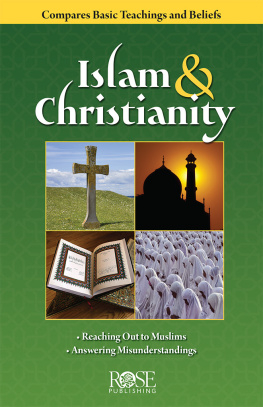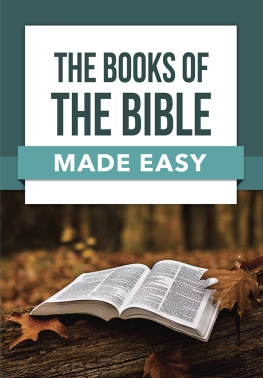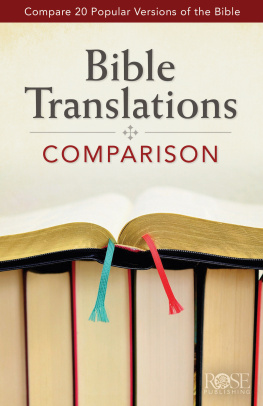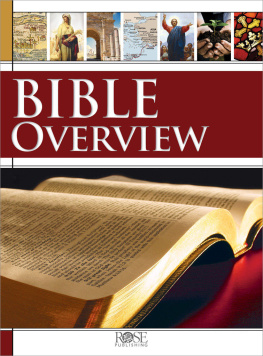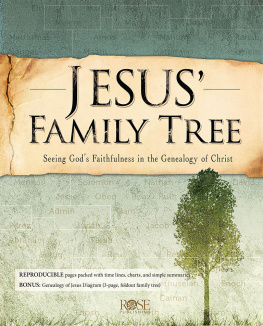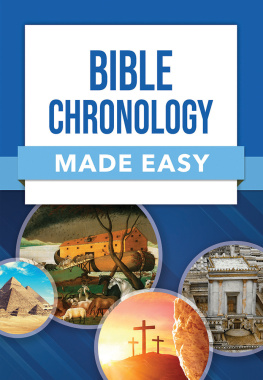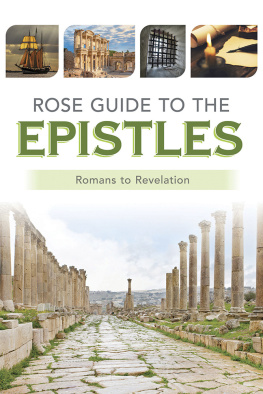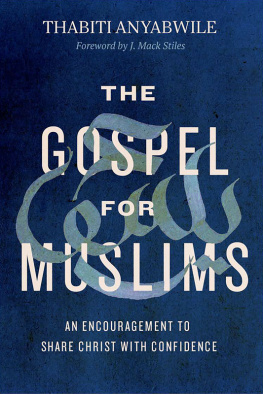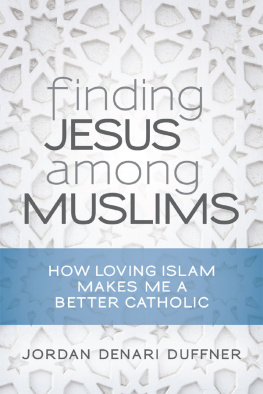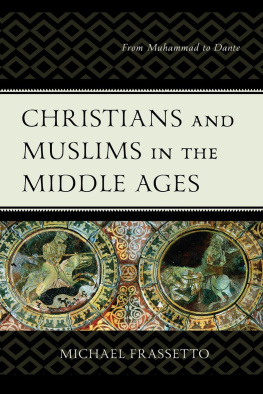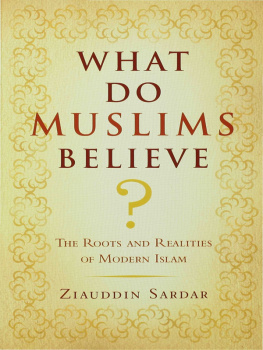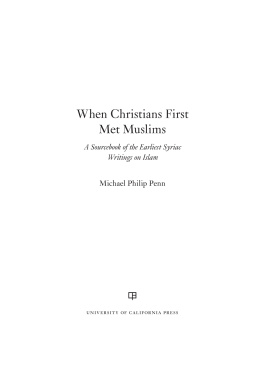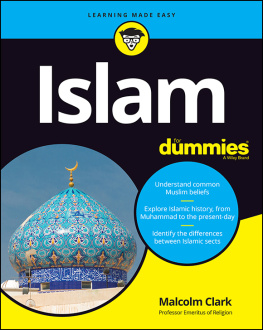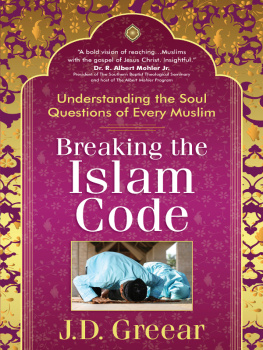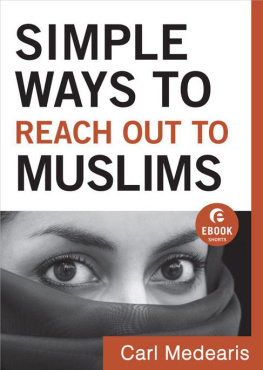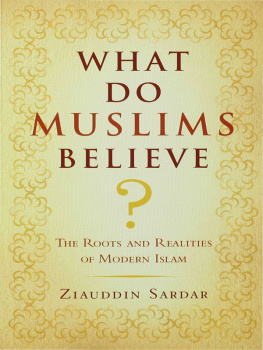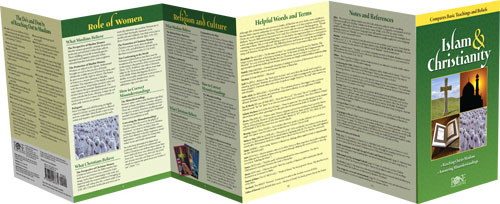The printed version of this eBook is the Islam & Christianity pamphlet, ISBN-13: 9781890947675
Primary author: Rev. Bruce Green, MA, has been building bridges since 1983 between Muslims and a consortium of evangelical churches.
Contributor: Andras Szalai, PhD
Photos/art: Peter Commandeur
Special thanks to: Amal Bejjani, Anne Dinnan (Coordinator of Resource Development Muslim Ministries), and Labib Madanat (Executive Secretary, Palestinian Bible Society)
All Scripture quotations, unless otherwise indicated, are taken from the Holy Bible, New International Version. Copyright 1973, 1978, 1984, 2011 by Biblica, Inc. Used by permission of Zondervan. All rights reserved worldwide.
It is illegal to photocopy, transmit electronically, post on the internet, or reproduce this pamphlet in whole or in part in any form.
2004, 2013 RW Research, Inc.
Rose Publishing, LLC
PO Box 3473
Peabody, Massachusetts 01961-3473 U.S.A.
Email: info@hendricksonrose.com
www.hendricksonrose.com
All rights reserved.
Build: 2022-04-21 10:41:03 EPUB 2.0
Islam and Christianity
This handy eBook:
- Provides an excellent comparison chart which explains what Muslims believe, what Christians believe, and how to correct misunderstandings in less than 30 minutes.
- Compares Muslim and Christian beliefs on 8 key topics, including God, salvation, prophets, scriptures, rituals, and more!
- Includes handy do's and don'ts that will help you reach out and explain your faith in a clear and culturally sensitive way.
- Reveals what Muslims have been taught about Christianity and how to answer their questions and concerns.
Religious History
What Muslims Believe
Islam, the Original Religion
Muslims believe that Islam (meaning submission to Allah) is the original religion since the creation of Adam, the first prophet. Since the beginning of time, all people who submit to Allah are called Muslims. Over the centuries, Allah appointed thousands of prophets to warn and guide mankind. Prominent among them were Ibrahim (Abraham), Musa (Moses), Dawud (David), and Isa Al Masih (Jesus the Messiah).
Muhammad, the Final Prophet
Mankind habitually strayed from the way of Allah revealed through the prophets. About AD 610 in Arabia, Allah sent the last prophet, Muhammad, who united the Arab tribes and turned them from idolatry to Islam.
The Spread of Islam
After the death of Muhammad in AD 632, Sunni Islam rapidly spread from Arabia under the leadership of the first four rightly guided rulers ( caliphs ) who were close companions of Muhammad. Shia Islam began to rapidly spread through the teachings of infallible Imams from the bloodline of Muhammad. To Muslims, the military and economic expansion of Islam liberated people suffering under the corrupt Byzantine and Persian Empires.
What Christians Believe
Adam and Jesus
Christians also trace their religious history back to Adam, who brought the curse of sin upon all mankind (Gen. 13). In the Bible, Jesus is known as the second Adam, who came to remove this curse of sin (Rom. 5).
Abraham and Jesus
Gods plan unfolded carefully over history. Abraham ( Ibrahim in Arabic) was promised the blessing to carry out Gods eternal purposes. He was blessed so he could be a blessing to all the families of the earth (Gen. 12:13; Gal. 3). Jesus is the promised seed of Eve who would crush the head of Satan ( Shaytan in Arabic; Gen. 3:15) and bring the blessing of the Good News ( Injil in Arabic).
The Victory of Jesus
A great war has been raging throughout the Creation, a struggle in which Satan has twisted all good thingseven religioninto weapons to discredit God. The decisive battle of this war was won on the cross when Jesus destroyed Satans power and overcame the curse of sin. By rising from the dead, Jesus conquered death, a consequence of the curse, and thereby offers the blessing of eternal life to mankind.
How to Correct Misunderstandings
The Misunderstandings
Religious history between Christians and Muslims is covered with blood and war, much like all of human history. Gods name has been used by both sides to justify murder and mayhem. Several key events in history continue to affect the perceptions of Christians and Muslims. These events include the Islamic expansion (7 th 8 th centuries), the Crusades (11 th 13 th centuries), the establishment of the state of Israel in 1948, the attack on the World Trade Center, the Gulf Wars of 1991 and 2003, and many other events.
Correcting the Misunderstandings
Historians have pointed out that these holy wars of history were more about economics than faith. Yet economic struggle cannot explain the intense hatred, cruelty and malicious evil of a Crusader, Nazi, or suicide bomber. Behind these horrors is a deeper spiritual war and a vindictive enemy, namely Satan. Christians and Muslims should not lose sight of Satan, the enemy of souls. By recognizing the common enemy, Christians can create a context in which they can build relationships with Muslims.
Who is God?
What Muslims Believe
Allah Is One
The absolute oneness of Allah is primary to Muslims. The greatest sin is to associate any partner with him. This sin is called shirk . Muhammads message advocating one God was courageous because idolatry was the established religion of Arabia. Muhammad challenged this system and finally prevailed with the message of monotheism. Islam is rooted in this commitment to the belief in one God.
Allah Cannot Be Compared
Allah is transcendent and cannot be compared to humans or any other created thing. Allahs character and attributes are revealed through his 99 Arabic names, the two most common being The Merciful and The Compassionate. Allah is never described in Islam by using human family terms such as father or son. In the Quran he reveals his will for mankind to obey, not his person for mankind to relate with and know.
Allahs Ultimate Attribute: His Will
Allah creates and sustains all life, spiritual and material. His will is absolute and cannot be questioned by his creation. He is our final judge without a mediator. The best chance on Judgment Day is for those who live lives of righteousness and submission to Allahs will Insha Allah (God willing).
What Christians Believe
God: A Unity, Not a Unit
The Bible teaches that God is one, but he is a complex unity, not just a simple unit. He is completely unique, a personal God who existed in relationship from eternity.
God the Father, God the Son, God the Holy Spirit
Scripture reveals God as the ultimate Father, in name, character, and person, but always as the Creator, never with sexual references. God also reveals himself as the Eternal Word, who became flesh when the Holy Spirit overshadowed the Virgin Mary and conceived Jesus, the Messiah, who is also called the Son of God in the Bible. In his teaching, Jesus further reveals God the Holy Spirit, who was sent by the Father and himself.
Next page
